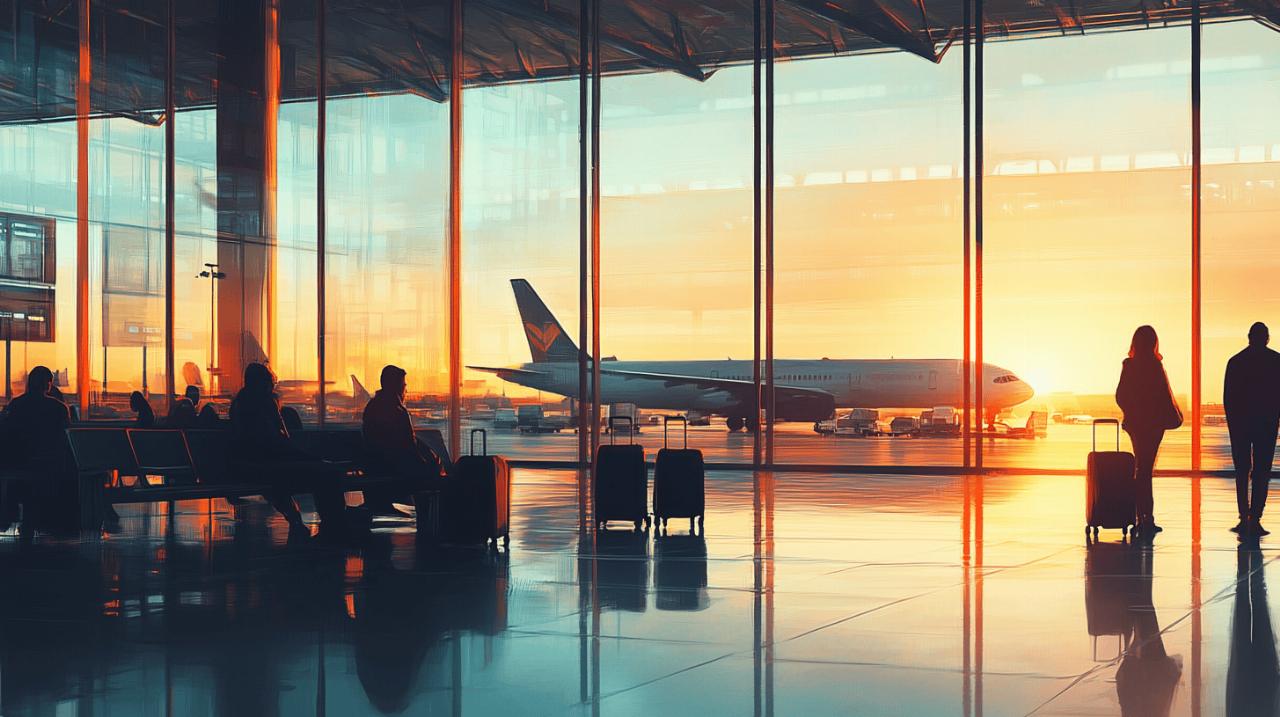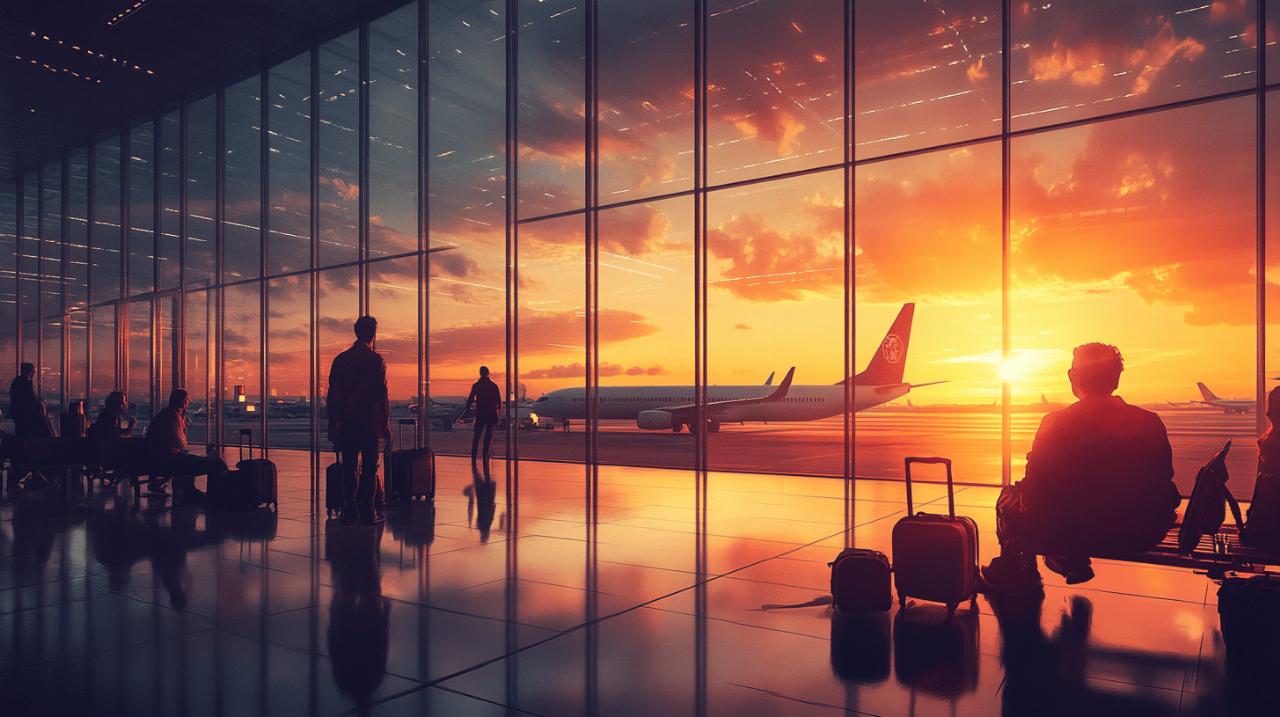
Embarking on a journey can be exciting yet overwhelming without proper planning. Meticulous preparation is key to creating a worry-free travel experience that allows you to enjoy every moment of your adventure.
Preparation strategies before departure
The foundation of any successful trip lies in thorough preparation. From researching your destination to securing necessary travel documents, taking time to plan ahead can significantly reduce stress and enhance your travel experience.
Creating comprehensive destination research files
Start by gathering detailed information about your destination. Create digital or physical folders containing essential details about local customs, weather patterns, transportation options, and must-visit attractions. Pinterest and Instagram can serve as valuable resources for visual inspiration, while travel blogs offer practical insights from experienced travelers. Include maps, emergency contact numbers, and visa requirements in your research files. For comprehensive destination guides and planning tools, visit https://www.preparatuviaje.es/ where you'll find specialized information to enhance your research process.
Building flexible itineraries with breathing room
While planning is crucial, avoid scheduling every minute of your trip. Create an itinerary that balances structured activities with free time for spontaneous discoveries. Consider travel distances between locations, opening hours of attractions, and local transportation availability. Factor in time for rest to prevent travel burnout. Remember that delays and unexpected opportunities are part of the journey. When booking accommodations and flights, secure reservations early for better rates, but maintain flexibility for changes. Many travelers find success using platforms like Skyscanner for flights and Booking.com for accommodations. You can access reliable transportation options through services like 12GO, as mentioned on https://www.preparatuviaje.es/ which offers valuable resources for creating balanced travel schedules.
Smart packing techniques
Planning a stress-free travel experience starts with mastering the art of packing. Efficient packing saves space, reduces luggage weight, and ensures you have everything needed for your journey. When preparing for your trip, consider using packing cubes to organize your belongings and opt for lightweight luggage to avoid excess baggage fees.
Climate-appropriate clothing selection
Researching your destination's weather patterns is crucial for selecting the right clothing. Pack versatile pieces that can be layered for changing temperatures and choose fabrics appropriate for the climate. For warmer destinations, lightweight, breathable materials are ideal, while colder locations require thermal layers and weatherproof outerwear. Always check seasonal forecasts before finalizing your packing list, and remember that cultural norms may influence appropriate attire in certain regions. Limit your clothing to mix-and-match items that can create multiple outfits, reducing the temptation to overpack.
Essential items for specific activities
Your planned activities should guide what specialized items you pack. Beach vacations require swimwear, sunscreen, and perhaps snorkeling gear, while hiking trips demand appropriate footwear, navigation tools, and safety equipment. Create a tailored packing list based on your itinerary, including any specialty items that might be expensive or difficult to purchase at your destination. Don't forget travel essentials like a power bank for electronic devices, noise-canceling headphones for long journeys, and a small backpack for daily excursions. For health and safety, pack a first-aid kit with basic medications and any prescription drugs in your hand luggage, especially if you're traveling to remote areas where pharmacy services might be limited.
Documentation and security measures
When planning a worry-free travel experience, proper documentation and security measures are essential components that deserve careful attention. Taking time to organize your travel documents and implement security protocols can save you from stress and potential issues during your journey. Proactive preparation in these areas creates a foundation for a smooth travel experience, allowing you to focus on enjoying your destination rather than dealing with preventable problems.
Research shows that travelers who plan ahead with thorough documentation and security measures report significantly less stress during their trips. This preparation includes not only having the right papers but also creating systems to protect your information and valuables throughout your journey. Let's explore some effective strategies for managing your travel documentation and implementing security measures that will contribute to a worry-free experience.
Digital and physical backup systems
Creating reliable backup systems for your travel documentation is a smart strategy for worry-free travel. Start by scanning all important documents—passports, visas, insurance policies, tickets, and reservation confirmations—and storing them in multiple secure locations. Upload these digital copies to cloud storage services you can access from anywhere, and email copies to yourself for easy retrieval.
Beyond digital storage, physical backups remain crucial. Pack photocopies of key documents separate from the originals in your luggage. Many experienced travelers recommend distributing copies among different bags to minimize risk. When organizing your document backups, create a system that allows quick access when needed. Consider using a dedicated travel folder or digital filing system with clearly labeled sections for different document types.
For electronic devices containing important information, implement security measures like password protection, encryption, and remote wiping capabilities. Portable chargers and backup batteries ensure your digital systems remain accessible throughout your journey. Some travelers use password manager applications to securely store login credentials for travel-related websites and services, adding an extra layer of digital security to their travel preparation.
Travel insurance coverage options
Securing appropriate travel insurance is a fundamental aspect of travel planning that provides crucial protection against unforeseen events. When selecting travel insurance, look for comprehensive policies that cover medical emergencies, trip cancellations, lost baggage, and travel delays. The right coverage can save you from significant financial losses and provide peace of mind throughout your journey.
Different destinations may require specific insurance considerations. Research your destination's healthcare system and typical travel risks to determine appropriate coverage levels. For activities like adventure sports or cruises, verify that your policy includes these specific scenarios. Many travelers opt for policies with emergency evacuation coverage, particularly when visiting remote areas where medical facilities might be limited.
Review policy details carefully before purchasing, paying special attention to coverage limits, deductibles, exclusions, and claim procedures. Many policies have specific requirements for documentation when filing claims, so familiarize yourself with these processes before departure. Keep digital and physical copies of your insurance policy easily accessible, including emergency contact numbers for your provider. Some travel insurance companies now offer mobile apps that allow quick access to policy details and streamlined claim submissions while traveling.
Financial planning for travel
Smart financial planning forms the backbone of any worry-free travel experience. Taking time to organize your money matters before departure can save you from stress and unexpected financial challenges while abroad. A well-planned budget allows you to enjoy your trip without constantly worrying about expenses.
Currency considerations and exchange strategies
Obtaining foreign currency before arriving at your destination typically offers better exchange rates than airport kiosks or tourist areas. Research the local currency of your destination and understand approximate conversion rates to help you recognize good deals. Many travelers benefit from using a mix of payment methods including some cash for small purchases, credit cards for larger expenses, and perhaps a prepaid travel card that locks in exchange rates. When using ATMs abroad, opt for those affiliated with banks to minimize fees. Remember that informing your bank about your travel plans can prevent your cards from being flagged for suspicious activity when used in new locations.
Budget allocation across trip components
Creating a comprehensive travel budget requires consideration of all major expense categories. Start by determining your overall budget constraints, then allocate funds across transportation, accommodations, meals, activities, and a contingency fund for unexpected costs. Transportation typically includes flights, airport transfers, and local transit options which can be researched through platforms like 12GO. For accommodations, booking in advance through sites like Booking.com often secures better rates. Factor in the relative cost of your destination—places like Thailand or Malaysia generally offer more affordable experiences than New Zealand or Canada. Activity costs vary widely, so research and pre-book through reliable sites like Getyourguide.com or Viator.com for both better rates and guaranteed spots. Setting aside approximately 10-15% of your total budget for unexpected expenses provides peace of mind during your journey and helps accommodate spontaneous opportunities that enhance your travel experience.
Health and safety precautions
When embarking on your travels, prioritizing health and safety is crucial for a worry-free experience. Proper preparation before departure ensures you can fully enjoy your journey without unexpected medical issues or safety concerns. Research shows that travelers who take appropriate health precautions are more likely to have a positive travel experience.
Pre-departure health planning should include consulting with healthcare providers about necessary vaccinations at least 4-6 weeks before your trip. Many destinations require specific immunizations such as Hepatitis A and B, Typhoid, Yellow Fever, and up-to-date Tetanus shots. Travel clinics like those at Nima Pharmacy offer comprehensive vaccination services tailored to your destination.
Medication management while traveling
Managing medications effectively during travel requires careful planning. Always pack essential medications in your hand luggage rather than checked baggage to prevent issues if your luggage is delayed or lost. Make a list of all your prescription medications, including generic names, in case you need replacements while abroad.
Bring sufficient quantities of prescription medications to last your entire trip, plus extra for unexpected delays. Consider time zone changes that might affect medication schedules. Store medications in their original labeled containers to avoid problems at customs. For temperature-sensitive medications, invest in appropriate storage containers.
Research pharmacy services at your destination in advance. Some countries have strict regulations about bringing certain medications across borders, so verify what's permitted. Carrying a doctor's note explaining your need for specific medications can be helpful when crossing international borders.
Staying aware of local regulations and advisories
Staying informed about local regulations and travel advisories is fundamental to travel safety. Before departure, check government travel websites for the latest advisories about your destination. Register with your country's embassy or consulate at your destination for emergency assistance if needed.
Research local laws that might differ significantly from those at home. This includes regulations on photography, dress codes in religious sites, alcohol consumption, and behavior in public spaces. Being aware of these differences helps avoid unwitting violations and potential legal issues.
Stay updated on health advisories specific to your destination, including disease outbreaks, water safety, and food precautions. Many travelers face issues from consuming contaminated food or water, so understanding local risks is essential.
Monitor local news and weather forecasts throughout your trip, especially if traveling during seasons prone to natural disasters or political unrest. Having travel insurance that covers medical emergencies and evacuation provides valuable peace of mind and financial protection against unforeseen events.
When selecting accommodations, research neighborhood safety and proximity to medical facilities. Keep digital and physical copies of important documents like passports, insurance policies, and emergency contacts. Share your itinerary with trusted family or friends so someone knows your whereabouts during your travels.
Communication planning
When preparing for travel, effective communication planning is a crucial aspect that many travelers overlook. Proper communication strategies ensure your safety, provide peace of mind for loved ones, and help you stay connected during your journey. This aspect of travel preparation deserves thoughtful consideration alongside other pre-departure tasks like securing travel insurance, researching destinations, and arranging transportation.
Sharing travel details with trusted contacts
Before departing, create a detailed itinerary including flight numbers, accommodation addresses, and planned activities. Share this information with family members or close friends who won't be traveling with you. This practice serves as a safety measure should any emergency arise during your trip. Make sure to update these trusted contacts if your plans change significantly while traveling. For enhanced security, consider providing digital copies of important travel documents such as passport information, visa details, and insurance policies. Some travelers find it helpful to set up regular check-in times with their contacts, especially when visiting remote areas or destinations with known safety concerns. This simple step provides reassurance to both you and your loved ones while you're away.
Connectivity solutions across destinations
Research connectivity options for your destination before departure. Many countries offer affordable e-SIM cards or local SIM cards that provide data access at reasonable rates compared to international roaming charges. Consider purchasing these in advance to ensure immediate connectivity upon arrival. For remote locations, investigate satellite phones or portable WiFi devices as backup options. Download offline maps, translation apps, and travel guides before your journey to access critical information even without an internet connection. Pack essential tech accessories like power banks, universal adapters, and charging cables in your carry-on luggage. Set up messaging apps that work via WiFi to stay in touch with family when cellular service isn't available. Being prepared with multiple communication methods will help you navigate confidently through your travels while maintaining vital connections to home.



